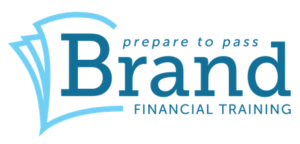For Professional Paraplanner’s TDQ (Training, Development and Qualifications) series, we have teamed up with key support providers, such as Brand Financial Training, to provide our readers with the very best in training, development and exam support.
This series aims to provide you with valuable advice and guidance materials to help you achieve your training goals, perfect your exam techniques and test your knowledge of the financial services market.
The following 10 questions, which can also be found in our February 2020 issue, relate to examinable Tax year 19/20, examinable by the CII until 31 August 2020.
QUESTIONS
1. Irene has taken out an income protection policy. If she becomes incapacitated and unable to work, when will her benefits be paid?
A. After a deferred period chosen by her
B. From day one of her claim
C. After a deferred period stated by the insurer
D. If she is incapacitated for a continuous period of 3 months or more
2. The Efficient Market Hypothesis (EMH) was developed by Eugene Fama in the 1960s. He believed that:
A. security price movements are random and therefore predictable
B. it should be impossible to achieve returns in excess of average market returns consistently through stock selection or market timing
C. security prices reflect some available information in the market and prices slowly adjust to new information
D. an investor can only obtain higher than average returns through the skill and expertise of buying low risk investments
3. A machine needed to produce goods for a company is bought for £5,000. It has a useful life of 6 years and an expected re-sale value then of £500. What is the annual depreciation charge?
A. £916
B. £833
C. £750
D. £417
4. Which of the following is a correct statement regarding the Attendance Allowance?
A. It is a taxable benefit
B. It is a means tested benefit
C. It is paid only to those with an adequate NI record
D. It is payable to disabled people aged 65 and over
5. Which of the following is a type of credit risk?
A. Event
B. Downgrade
C. Solvency
D. Liquidity
6. Martin is considering investing in gilt-edged securities. He should be aware that: Tick all that apply.
A. interest is usually paid twice a year
B. interest is taxed on a current year basis as earned income
C. he can sell them at any point on the stock exchange
D. he can claim any losses against future capital gains
7. Each of the following is a product standards rule that members of the Equity Release Council must abide by with the exception of:
A. Customers must be allowed to remain in their property for life, provided it
remains their main residence
B. Customers must have the right to move their plan to another property
C. Customers must have a guarantee that interest rate charged will not alter during
the term on their plan
D. Customers must be granted a no negative equity guarantee
8. Sam and Brian are looking into the Help to Buy equity loan scheme. What factor prevents them from being eligible to use it?
A. They intend to sublet the property
B. They are home movers rather than first-time buyers
C. The property is a new build rather than an existing property
D. The property is valued at £500,000
9. Guaranteed Minimum Pension (GMP) benefits between 1978 and April 1988 for members reaching State pension age before 6 April 2016 were:
A. fully inflation proofed, paid entirely by the State.
B. fully inflation proofed, with the State paying any RPI in excess of 3%.
C. fully inflation proofed, paid entirely by the Scheme.
D. inflation proofed, with the scheme paying up to a maximum of 2.5%.
10. Which of the following is one of the FCA’s regulatory principles?
A. Consumer protection
B. Efficiency and economy
C. Promoting competition
D. Protecting financial markets




























